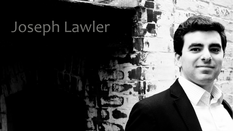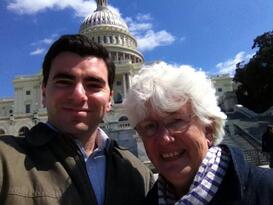Artist, small businesswoman, and mother, grandmother, and great-grandmother
I idolized her as a young kid. Some of my earliest memories are of playing secretary, because I wanted to be like her when I grew up. At the time, she was running a secretarial services business on Washington Street in Dedham. I created my own mini-secretary services office at home and played secretary, even though I had no idea what the job entailed.
Habou taught my siblings and me how to gamble and how to swear. She taught us how to play cards and board games. As we grew up and we got better, she transitioned seamlessly from cheating to lose to cheating to win.
Habou spent countless hours gardening, both at our house in Dedham, where passersby would frequently complement the bursting flowerbeds, and in Lancaster, where she toiled in the hot sun into her old age, even after she suffered heart problems. Often she’d rope me in to weeding or mulching. Thanks to her, I appreciate good gardens and the value of having home-grown herbs for cooking.
I believe that Habou considered herself an artist before anything else. Throughout my life, she moved from medium to medium: Watercolors, mosaics, woodcuts, oil paintings, etc. At Easter each year, she would lead all us kids in decorating pysanky -- that is, traditional Ukrainian Easter eggs designed using water-based paints and wax, an artform that my sister Deirdre latched on to, eventually eclipsing Habou in proficiency and becoming a top-notch pysanky artist. At one point, Habou became very engaged in buying old furniture, redecorating it, and selling it. It became a side hustle, and she employed me in stripping the varnish off old pieces she found at yard sales.
I was probably one of her worst students, but I gained a life-long appreciation for art from Habou, as well as some rudimentary sketching skills. She had many students at her art studio in Sterling who were more successful. But the most important lesson I learned from her was the importance of beauty in day-to-day life, in the home -- a lesson she taught by example. She left me enough original artwork to help make that a reality in my own home.
In many ways, Habou was more like a big sister to me than a grandmother. She certainly was not a second mom to us -- in fact, she was much less controlling than some of my actual siblings. Nevertheless, I’m sure that I caused her enormous stress at times, for instance when I took a chunk out of my hip bodysurfing in Gloucester on her watch, or when we kids, waiting for her to get out of church, put her car in neutral and rolled it down a hill out of the parking lot. I can only imagine how little fun it was to explain that one to my parents.
Life with Habou was a little bit funnier. She had a great sense of humor and zero pretentiousness. I teased her constantly, even as she became bedridden in her last months, and she always took it as all good fun and gave it right back. As much as she presented a sweet and friendly face to the outside world, she was not at all above a crack or a sarcastic comment about someone who deserved it.
Although she had a very close-up view of all of the dumb stuff I did, especially in high school, Habou never once criticized me, as far as I can remember. Instead, she was unfailingly supportive and understanding.
One thing about living with Habou -- she was often clumsy. She could hardly get through a room without bashing a knee or a foot on something and then theatrically clutching it in pain. If I were nearby and trying to read a book, I’d get annoyed. Then I’d get annoyed at myself for losing patience with her -- double annoyance. Of course, I mention this not as criticism, but as a reminder to myself of what life with her was like, and of the kind of irritating characteristics of loved ones that you will miss when they are gone.
It’s incredible to think what Habou lived through. On the street where she lived as a child, some households didn’t have electricity or plumbing. She lived to have an Instagram account and a Pinterest board and was active in group texts.
She was born in the ‘30s and had memories of the Great Depression and World War II as a child. She said that her family lived surprisingly well during times of rationing. She had a parachute and a 50 cal ammo can brought back from war by one of her brothers, objects that couldn’t have seemed cooler to me as a kid.
I wish I knew more about her life as a young adult. The snippets I heard here and there, though, were often Forrest Gump-like. For instance, her time at art school in New York City allowed her to see some of the most famous musicians, such as Ella Fitzgerald, live in small venues.
She grew up in a time and place, especially in upstate New York, where serious anti-Catholicism was common. Yet she became a convert. Her faith defined her worldview and her week-to-week life for as long as I can remember.
Nothing could have been more gratifying to her than to know of all the people who have reached out in recent days to say that they are praying for her.


